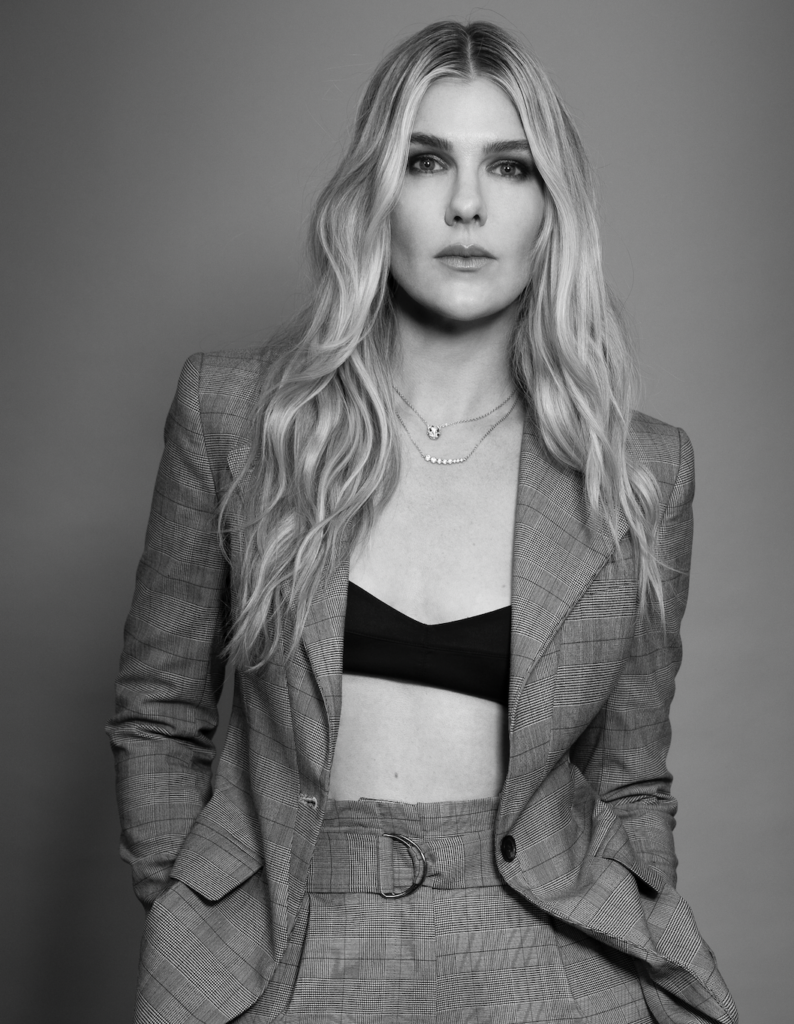HBO’s The Undoing follows the trials and tribulations of New York’s elite Upper East Side residents, as a murder mystery and a series of unexpected entanglements render each narrative turn with a distressing urgency. Lily Rabe—Broadway belle-turned-TV maven—stars as Sylvia Steinetz, loyal confidante to Nicole Kidman’s Grace Fraser, whose husband may or may not have brutally bludgeoned his young mistress. Treachery ensues as a veil is lifted with each successive episode in the miniseries, rendering each character as a potential suspect or co-conspirator to this heinous crime.
Here Rabe reveals what compelled her to take part in The Undoing, the demystification of New York’s upper class, and how television’s recent renaissance has incomparable unifying potential.
What initially attracted you to the role of Sylvia?
“I initially received the first two scripts and had worked with the brilliant executive producer Bruna Papandrea on two previous projects—I was also very eager to work with Nicole Kidman. However, it was director Susanne Bier and our long conversations about the series that really sealed the deal for me. She had a lot of plans for my character Sylvia that I would never have known from the first two scripts I was given. She promised to take Sylvia on a real journey, which I was thrilled about.”
When formulating a character’s identity, do you like to pull from personal experiences or anecdotes or do you prefer to create a unique identity specific to that character?
“It depends on the role—who the character is and what the circumstances are. I can often find a mirror to hold up to personal experiences, but I am of course not always pulling from a place that is immediately reflective of my own history. When preparing for a role, I love to pack a suitcase full of what might be useful, but then, just like on a great trip, you can’t ultimately predict the weather or the whims, so a lot might never get unpacked, and you’re buying things at the local store on the day.
“The world of the Upper East Side, while it wasn’t my world, it was adjacent. I was born in New York City as well, spending my very earliest years on the Upper West Side, which is a very different environment than what is shown on The Undoing. However, I attended a boarding school as a day student, and a large percentage of my classmates came from the Upper East Side. I was friends with a lot of them through high school and after, so that lifestyle was something I witnessed to a point. It was a lovely experience to draw from when appropriate, but the community wasn’t a complete mystery.”

Photographed by Tiziano Lugli
Do you enjoy wearing all of the high-end fineries that a show about the New York upper class affords?
“Yes, yes! Our costume designer Signe Sejlund was a genius. She was wildly brilliant and collaborative, HBO doesn’t cut corners, so it was all the real deal, and it shows.”
“When I landed to begin shooting, with a handful of days planned for preproduction before my actual first day was scheduled, there was a flurry of voicemails and texts on my phone. Susanne had added a shot that needed to happen the next morning because of a location. So, my first fitting was me running into a trailer, shaking Signe’s hand, and us staring at a row of gorgeous camel coats. “This one” we both said, pointing to the Max Mara coat I wear a lot in the show. I put it on, asked Signe to borrow the sunglasses she had on her head, was out the door and racing to set.”
Does wardrobe help you slip into a character more succinctly?
“Yes, it’s vitally important, whether you’re wearing a luxurious Max Mara coat, or a $2 beaten-up t-shirt. I come from a theatre background, so that ritual of putting on a costume before going on a stage is sacred to me, and it’s the same with film and television. Those moments in the trailer, alone, at the beginning of the day are very precious.”
What is it about the trials and tribulations of the extremely wealthy that makes for engrossing crime dramas?
“There is definitely something universally compelling about the Upper East Side, it is such a miniscule percentage of society. I think Susanne did such an exquisite job of nuancing the community as opposed to painting the characters with broad, stereotypical strokes. But there is definitely a complex veil over this community, and as an audience, there’s a shared excitement in pulling back the curtains. These individuals are very good at keeping secrets from one another, and from themselves, which makes for great storytelling, especially when David E. Kelley is writing.”
Over the last couple of years, television, more specifically miniseries, have become must-see cultural events that unify a large body of disparate viewers. What is the power of episodic narratives that proves to be consistently compelling?
“I think television is so incredibly elevated right now. There’s nothing lacking in the medium, it’s just rich with opportunity. Watching a show also has a unique ability to mark time in a wonderful and poignant way. The shows that really get under your skin make you remember exactly where you were, who you were with, and even what the weather was like at that point in time.
“I’m living in Canada at the moment, so I am especially far away from my family and friends, however, we all are especially isolated from loved ones this year, and I think the shows we are watching are a wonderful unifier.
“The Undoing airing has been a wonderful way to connect. I’ve had people from grade school who I haven’t spoken to in years reach out and frantically tell me their theories of who did it. It’s always a wonderful part of television—that you know people all over the place are similarly curled up under a blanket watching the same thing, but I think it means more than ever at the moment.”

